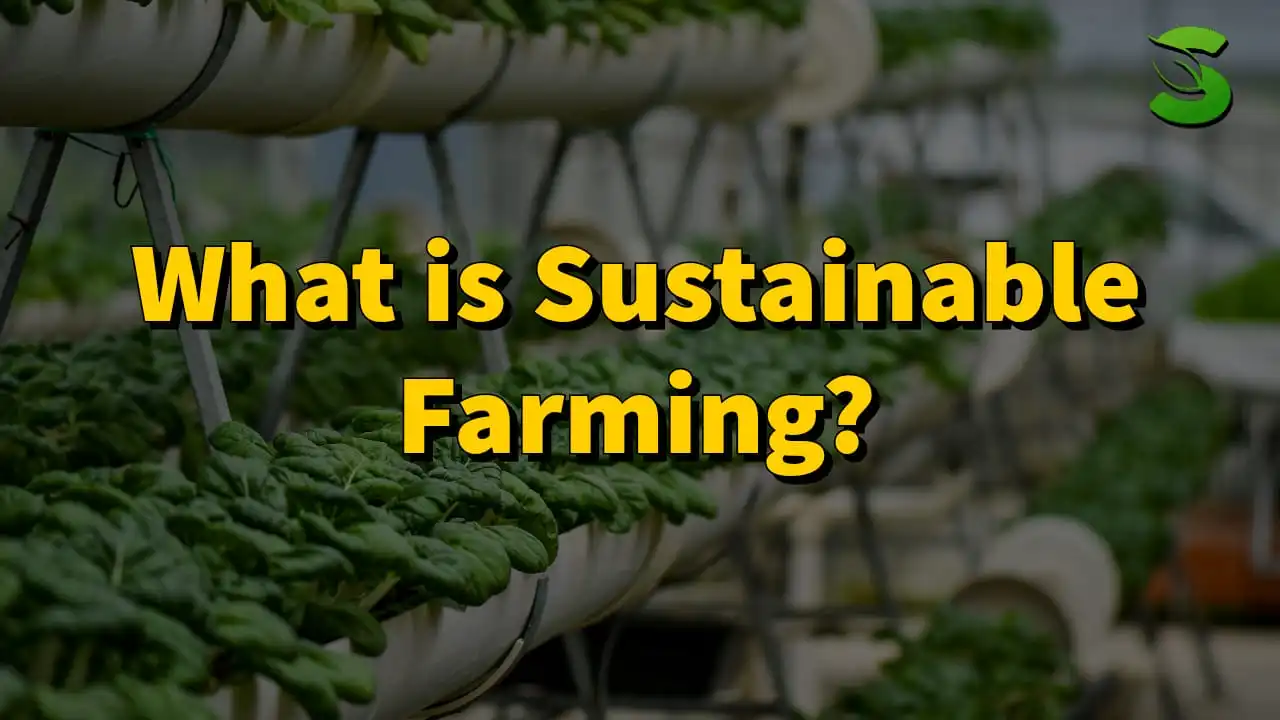Sustainable farming isn’t just a practice; it’s a commitment to preserving our planet for future generations. In this article, we’ll delve into the intricacies of what is sustainable farming and why it’s crucial for the health of our environment.
What is Sustainable Farming?
Sustainable farming involves cultivating crops and raising livestock in a manner that preserves the environment, supports local communities, and ensures the long-term viability of agriculture. It’s a holistic approach that considers ecological, economic, and social factors.
The Importance of Soil Health
Defining the Concept
Understanding sustainable farming starts with recognizing the pivotal role of soil health. Healthy soil is the foundation of successful agriculture, providing essential nutrients and supporting plant growth.
Water Management in Sustainable Farming
Efficient Water Usage Strategies
In sustainable farming, water is a precious resource. Practices such as rainwater harvesting, drip irrigation, and soil moisture monitoring help optimize water usage, reducing waste and promoting sustainability.
Crop Rotation for Longevity
Maximizing Crop Yield and Soil Fertility
Crop rotation is a sustainable farming practice that involves growing different crops in a sequential order. This not only maximizes yield but also enhances soil fertility by preventing nutrient depletion.
Natural Pest Control Methods
Balancing Ecosystems
Instead of relying on chemical pesticides, sustainable farming encourages the use of natural predators, crop rotation, and companion planting to maintain a balanced ecosystem and control pest populations.
Organic Fertilizers: A Key Component
Enhancing Soil Nutrition Organically
Sustainable farmers prioritize organic fertilizers such as compost and manure. These not only enrich the soil with essential nutrients but also promote microbial activity, contributing to overall soil health.
Utilizing Renewable Energy Sources
Solar and Wind Power in Agriculture
In sustainable farming, the focus extends beyond the fields to energy sources. Farmers are adopting solar panels and wind turbines to power their operations, reducing reliance on non-renewable energy.
Biodiversity in Agriculture
Creating Balanced Agricultural Ecosystems
Sustainable farming promotes biodiversity by incorporating various crops and fostering a diverse range of plant and animal species. This approach strengthens the ecosystem and enhances resilience against pests and diseases.
Agroforestry: Harmonizing Farming and Forestry
Integrating Trees into Agricultural Lands
Agroforestry is a sustainable practice that involves planting trees alongside crops. This not only improves soil structure but also provides additional income through timber and fruit production.
Reducing Carbon Footprint
Sustainable Farming’s Contribution to Carbon Reduction
By minimizing the use of synthetic inputs, adopting eco-friendly technologies, and sequestering carbon in soil and vegetation, sustainable farming plays a vital role in mitigating climate change and reducing the carbon footprint of agriculture.
Supporting Local Communities
Strengthening Rural Economies
Sustainable farming fosters community resilience by supporting local economies. Farmers markets, community-supported agriculture (CSA), and fair trade practices contribute to the well-being of rural communities.
The Role of Technology in Sustainable Agriculture
Innovations for Eco-Friendly Farming
Technology is a powerful ally in sustainable farming. From precision farming and smart irrigation systems to data analytics, technology enhances efficiency, reduces resource use, and minimizes environmental impact.
Government Initiatives for Sustainable Farming
Policies and Programs
Governments worldwide are recognizing the importance of sustainable farming. Various policies and programs provide incentives for farmers to adopt eco-friendly practices, contributing to a global shift towards sustainable agriculture.
Challenges in Adopting Sustainable Practices
Overcoming Hurdles
While sustainable farming offers numerous benefits, farmers face challenges in transitioning from conventional methods. Lack of awareness, initial investment costs, and adapting to new techniques are hurdles that require strategic solutions.
Success Stories in Sustainable Farming
Real-life Experiences
Exploring success stories of farmers who have embraced sustainable practices provides inspiration and practical insights. These stories highlight the tangible benefits of sustainable farming for both the environment and farmers’ livelihoods.
Financial Viability of Sustainable Farming
Balancing Ecology and Economics
Critics often question the economic viability of sustainable farming. However, studies show that, in the long run, sustainable practices can enhance productivity, reduce input costs, and create more resilient farming systems.
Sustainable Livestock Farming Practices
Compassionate Animal Husbandry
Sustainable livestock farming prioritizes animal welfare, promoting ethical practices such as pasture grazing, rotational grazing, and humane treatment. This not only benefits the animals but also ensures the production of high-quality, sustainable meat and dairy products.
Educational Resources for Sustainable Farming
Learning and Implementation
For those eager to adopt sustainable farming, a plethora of educational resources are available. Online courses, workshops, and local agricultural extension services provide valuable information and guidance for implementation.
Promoting Sustainable Farming in Urban Areas
Community Gardens and Rooftop Farming
Sustainable farming is not limited to rural areas. Urban communities can contribute by establishing community gardens and rooftop farms, fostering a connection between city dwellers and their food sources.
Global Impact of Sustainable Agriculture
Contributing to Environmental Conservation
The collective adoption of sustainable farming practices globally can have a profound impact on environmental conservation. From preserving biodiversity to reducing greenhouse gas emissions, sustainable agriculture plays a crucial role in building a healthier planet.
Future Trends in Sustainable Farming
Advancements and Projections
As technology continues to evolve, the future of sustainable farming looks promising. Innovations such as vertical farming, genetic advancements, and precision agriculture are set to redefine the landscape of eco-friendly agriculture.
FAQs about Sustainable Farming
Q: Is sustainable farming only for small-scale farmers?
Sustainable farming principles can be applied to operations of all sizes. Large-scale farmers can also benefit from sustainable practices, contributing to more eco-friendly and resilient agriculture.
Q: How does sustainable farming contribute to climate change mitigation?
Sustainable farming reduces the carbon footprint by sequestering carbon in soil, minimizing synthetic input use, and adopting practices that promote overall environmental health.
Q: Are sustainable farming practices expensive to implement?
While there may be initial costs, sustainable farming can lead to long-term savings through reduced input costs, increased productivity, and improved resilience against environmental challenges.
Q: Can sustainable farming be practiced in arid regions?
Yes, sustainable farming can be adapted to arid regions through efficient water management, drought-resistant crop varieties, and soil conservation techniques tailored to the specific challenges of these areas.
Q: How can consumers support sustainable farming?
Consumers can support sustainable farming by choosing locally sourced, organic products, participating in community-supported agriculture (CSA), and advocating for sustainable farming practices.
Q: What role does government policy play in promoting sustainable farming?
Government policies and programs play a crucial role in incentivizing and supporting farmers in adopting sustainable practices. Subsidies, research funding, and awareness campaigns contribute to the widespread adoption of eco-friendly agriculture.
Conclusion
In conclusion, understanding what is sustainable farming unveils a holistic approach to agriculture that benefits the environment, communities, and economies. Embracing sustainable practices is not just a choice; it’s a responsibility towards building a greener and more sustainable future.
ALSO READ |10 Reducing Waste in the Kitchen habitshttps://mysustainableplan.com/reducing-waste-in-the-kitchen/








1 thought on “Sustainable Farming: Nurturing the Earth”